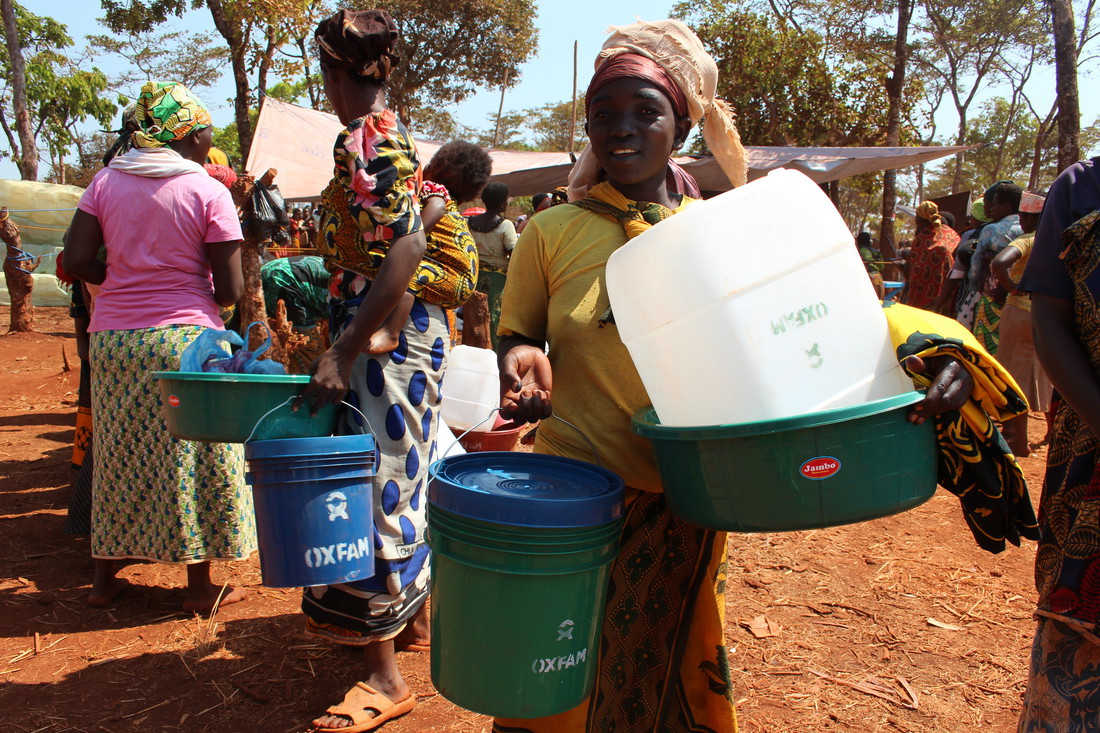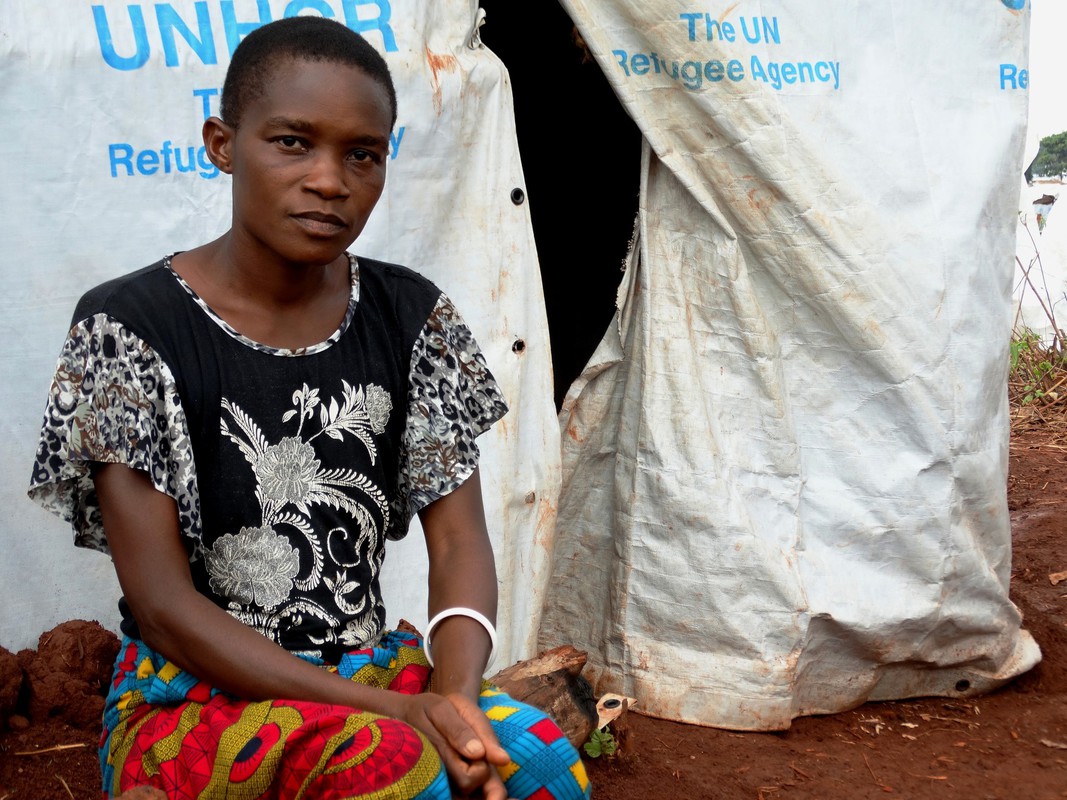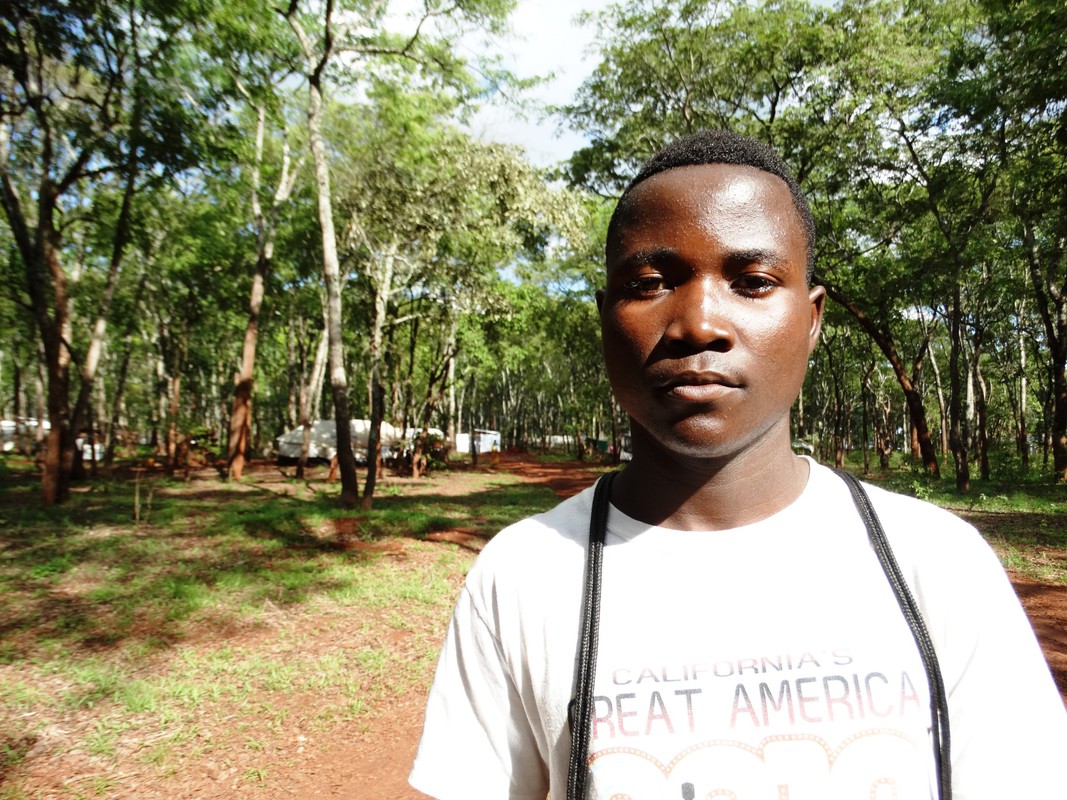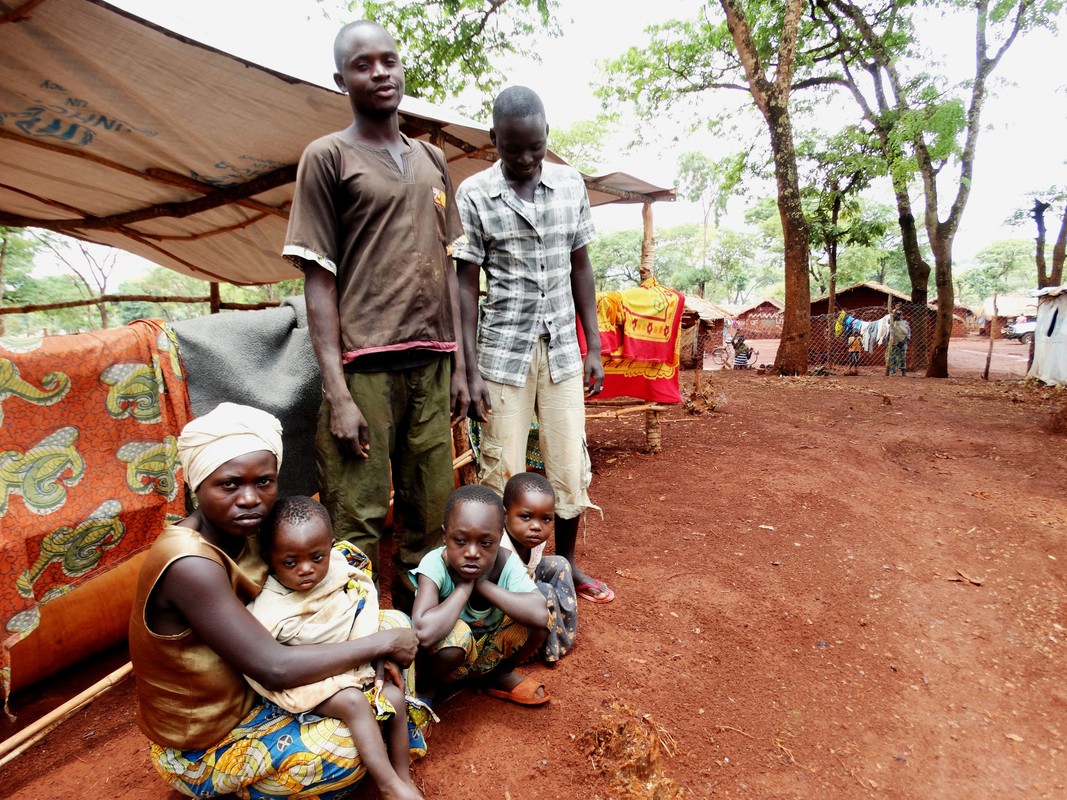
Burundi is one of the world’s poorest countries and over a decade of war has left the country in a constant state of instability.
The unstable political situation and election tensions in 2015 led to weeks of violent protests which badly affected the economy and left the most vulnerable people in society in an even worse situation than before. Tens of thousands of Burundians left their homes in fear of the violence and fled to neighboring countries, particularly Tanzania and Rwanda.
Tanzania is currently hosting over 110,000 Burundians within two camps, Nyarugusu and Nduta, which was recently opened to relieve overcrowding. More refugees continue to arrive in their hundreds every day and aid agencies face difficult decisions about where to use their limited resources.
Oxfam working for Burundian refugees in Tanzania
Oxfam has been working to support Burundian refugees in Tanzania since May 2015. Oxfam is leading on water and sanitation for Burundians living in Nyarugusu and Nduta camps, in Kigoma region, western Tanzania. We are installing water supplies and tap-stands, constructing water storage tanks, toilets, bathing shelters and hand washing facilities, as well as digging rubbish pits.
 Refugees collect Oxfam water and sanitation equipment in Nyarugusu camp. Photo: Bill Marwa.
Refugees collect Oxfam water and sanitation equipment in Nyarugusu camp. Photo: Bill Marwa.
Although thousands of refugees now have access to clean water and basic sanitation, life in the overcrowded and underfunded refugee camps is tough. Here, some refugees share their stories:
Like many Burundians, Irakunda was forced to flee her home with her husband and son in September this year due to political unrest.
After arriving in Tanzania she and her family were transferred to Nyarugusu camp by bus. “We stayed in a mass shelter for one month before we were given a family tent” but the tent doesn’t protect them against everything, least of all the rainy season, “if it rains at night we can’t sleep. We have to stand in the corners of our tent until it ends. I can’t cook if it rains, so we starve until it stops.”
 Irakunda, who fled her home in September, outside her family tent in Nyarugusu refugee camp, Tanzania. Photo: Mary Mndeme.
Irakunda, who fled her home in September, outside her family tent in Nyarugusu refugee camp, Tanzania. Photo: Mary Mndeme.
Even when it doesn’t rain, firewood for cooking is hard to find, cooking resources, like pots and pans are scarce and food rations are small which means the family are often hungry. Despite all this, Irakunda is grateful for the food aid she receives and that her son, unlike younger children, is able to digest the food which is distributed.
“I wish I had more money to help me buy food and improve our diet. The health of my family is not very good” she says, explaining that she lost her bicycle at the Tanzanian border. Without transport, opportunities to work are rare so for now Irakunda and her family try to get by on the food aid.
19 year old student, Hakizimana shares Irakunda’s problem of hunger. “The biggest challenge is food. There is not enough food so I walk around to avoid eating.”
 Hakizimana came to Tanzania in the hope of finding his family who had fled his home while he was away at school. Photo: Anita Kattakuzhy.
Hakizimana came to Tanzania in the hope of finding his family who had fled his home while he was away at school. Photo: Anita Kattakuzhy.
Hakizimana came home from school at the beginning of his holidays to find that his family had disappeared. “I came to Tanzania on the 10th of October 2015. I wanted to look for my family” but unfortunately, he found himself alone in Nduta, while his mother is in Nyarugusu. He has been allocated a tent which he shares with six other single males.
For boys and men in his situation he says that “another challenge at the camp is that women are the main priority in many aid organizations. It is good for those who came as a family [but] in all male tents like mine life is not easy as we are not prioritized.”
Minani, who was a farmer back home, has struggled not only with food shortages but with overcrowding.
After witnessing his parents and younger brothers being killed inside their home, he, his wife and three children escaped to Tanzania to find safety.
He spent three months living separated from his wife in an overcrowded mass shelter, which leaked in the rain and remained flooded afterwards, forcing them to build up the earth floor with sand. These flooded and damp conditions increase the risk of respiratory and waterborne diseases, putting the lives of hundreds at risk.
 Minami stands with his family before preparing to move camps. Photo: Mary Mndeme.
Minami stands with his family before preparing to move camps. Photo: Mary Mndeme.
Luckily Minami and his family are among some of the people who were moved to Nduta, reopened earlier this year to relieve overcrowding in other camps. Although the underfunding of the camps is putting refugees at risk, Minami says that this is better than the alternative, “we are happy to live as refugees- here we have peace.” Minami keeps looking on the bright side and talks about all the different organizations which have helped him “so we got enough clean water and latrines. We also got given hygiene kits from Oxfam, with buckets and soap.”
Life might be better here than it would have been in Burundi but still more needs to be done so that we can better help people in need.